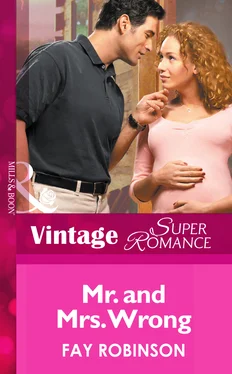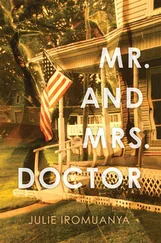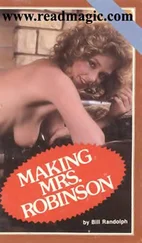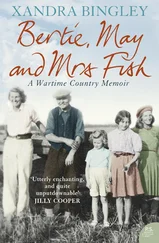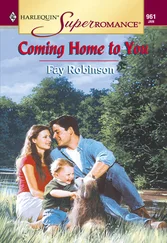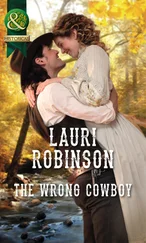“This isn’t the place to talk about our personal problems,” he said. “I’ve got work to do.”
“So do I.”
“I want your film. I need the photographs you took before my unit got here.”
“I didn’t take any.”
He held out his hand. “Come on, Lucky. I don’t have time for games. You shot at least a roll before you called it in. I know you. You recorded every gory detail.”
“I did not!”
She tried to act indignant, but he saw right through it. He snapped his fingers with impatience. “Give it to me. No screwing around anymore. This isn’t funny.”
“No! It’s newspaper property. Leigh would skin my hide. You’ll get me in trouble.”
“I’ll make you prints and bring them over.”
“No, I’ll make you prints and bring them over.”
“I need them for evidence.”
“And I need them for the Sunday paper.”
He pinched his forehead. “Do you have to argue with me about everything? You’re too damn much work.”
His words wounded her gravely, and he had to know it. She teetered between anger and despair, settling on despair.
“I didn’t mean that,” he said immediately.
“Yes, you did.” Her voice quavered.
“No, not the way it came out.”
“Yes, you did, and that’s the root of the real problem between us. You married me thinking everything would be easy, that I’d be easy. You created this fantasy about the perfect life. House. Kids. Job. Extended family. A wife you could control. But then you found out you’d married a woman who refuses to fit your fantasy.”
“That’s oversimplifying it.”
“Maybe, but it’s still accurate.”
“I don’t want to control you, Lucky, only protect you.”
“No, you want to change me, because deep down you don’t really like who I am.” She walked to the back of the Blazer and reached into her bag. “Here.” She slapped the film into his hand. She pushed up the tailgate and closed the hatch. When she walked to the driver’s door, Jack tried to stop her, but she ignored him and got in.
“Sweetheart, wait,” he said through the open window.
“The sad part is I’m stupid enough to still love you.”
“I love you, too. That’s never been the issue.”
She wouldn’t even dignify his comment with a response. If he loved her, he would never have left her. He’d accept her for who she was. She cranked the engine and put the vehicle into gear. “Move if you don’t want to get run over.”
He didn’t budge.
“Move or I’ll show you in front of your officers what a hissy fit really looks like.”
He took a step back and raised his hands in surrender. She drove off, spewing dust and gravel behind her.
By the time she got the hundred yards to the barricade and went around it, she was weeping. Hiding her sobs from the uniformed cop was impossible, so she didn’t try.
The clock in the dash said it wasn’t even nine, and already it had been a horrible day. She blotted her tears on the sleeve of her shirt and tried to control herself, fumbling in her purse for sunglasses.
If she went into the office with red eyes, she’d have to answer a million questions, and she couldn’t handle that now. What she’d rather do was go home, sit on the pier for the rest of the day and feel sorry for herself. Unfortunately she had too much work and a noon deadline.
Worse than that, she’d have to face Jack again in a little while. It would take him about two hours to get that film over to the police lab and have it developed—and discover she’d given him photos of a twelve-pound squash.
THE BUILDING THAT HOUSED the Register had begun its life before 1870 as a pickle factory. Some days Lucky could still smell the brine that had once saturated the hardwood floor.
She loved every square inch of the place, from the elegant antique doors at the front to the ink-stained concrete in the pressroom.
She particularly loved the second floor, her own private domain. Storage took up most of it, but she had a fair-size darkroom, a bathroom and a “parlor” that overlooked the street. The natural light in the front room, filtered by the beveled glass in the windows, was exceptional.
The office was already bustling when she arrived. The newspaper published twice weekly, on Sundays and Wednesdays, so the composing room did computer pasteup for those editions on Monday and Friday mornings.
She’d called Leigh on her cell phone earlier to tell her about the train accident and the bomb threat. Pushing through the doors, Lucky headed straight for the stairs with only a wave to the office and advertising staff and down the hall past the framed copies of front pages with historic headlines:
Local Man Commands Shuttle
Plant To Bring 300 Jobs
Her favorite page was at the end. The banner headline of this special edition, from July 5, 1973, said:
Lucky Child Found Alive
She’d read the story so many times she knew it from memory. The reporter had written:
A three-year-old, who fell from a boat last night and spent more than five hours floating in the Black Warrior River, sustained only a slight case of hypothermia and no serious injuries, doctors at Riverside Community Hospital said this morning.
Erin Renee Mathison, youngest daughter of newspaper publisher Matt Mathison and his wife, Ruth, of 103 Brighton Street, was pulled from the river at 3:45 a.m. near the Gorgas steam plant on the Mulberry fork, some two miles from where she fell overboard.
The girl tumbled from her family’s pontoon boat at about 10 p.m. Monday while watching the Independence Day fireworks display with her parents, grandparents and three older siblings.
Sgt. Albert Cummings of the Walker County rescue squad said the child was wearing a life vest and had learned to swim as an infant. “But it’s a miracle she didn’t drown or get run over by the flotilla,” Cummings said, referring to the annual lighted parade of boats. “She’s one lucky kid.”
As she went by the frame, Lucky rapped lightly on the glass, something she’d done every workday as long as she could remember. Over the years she’d discovered that luck came in both good and bad varieties, and while her superstitious ritual might not help, it sure didn’t hurt.
Leigh’s office was next to the stairs, and she called out as Lucky passed. Lucky stopped, turned and stuck her head around the door frame. “What?”
“I’ve rearranged the front page for you. I need three or four shots.”
“Give me an hour and you can clip the negatives you want me to print.”
“What do you know about this? I need to put together a quick story.”
Lucky came in and gave her a rundown of the facts while Leigh typed them into her computer. They usually couldn’t cover breaking news with any success or compete with the big papers out of Jasper, Birmingham and Tuscaloosa. Aside from Leigh, they had only one other full-time reporter. Correspondents, called “stringers,” sent in news from outlying communities.
The Register carried in-depth features, follow-ups of events and local stories the dailies had no interest in pursuing. But often, like today, they had exclusive photos.
While other small newspapers were being swallowed up by chains or going bankrupt, theirs flourished because they gave readers news they couldn’t get easily anywhere else—names of hometown people serving in the military, the lunch menus for the schools, profiles of new people in the area. That meant residents subscribed to both a daily paper and the Register.
Their dad had been a good editor and publisher, but Leigh had a better instinct for what readers wanted. With input from Cal, who’d completed his master’s degree in marketing last year, Leigh had dramatically increased readership and profits.
Читать дальше
